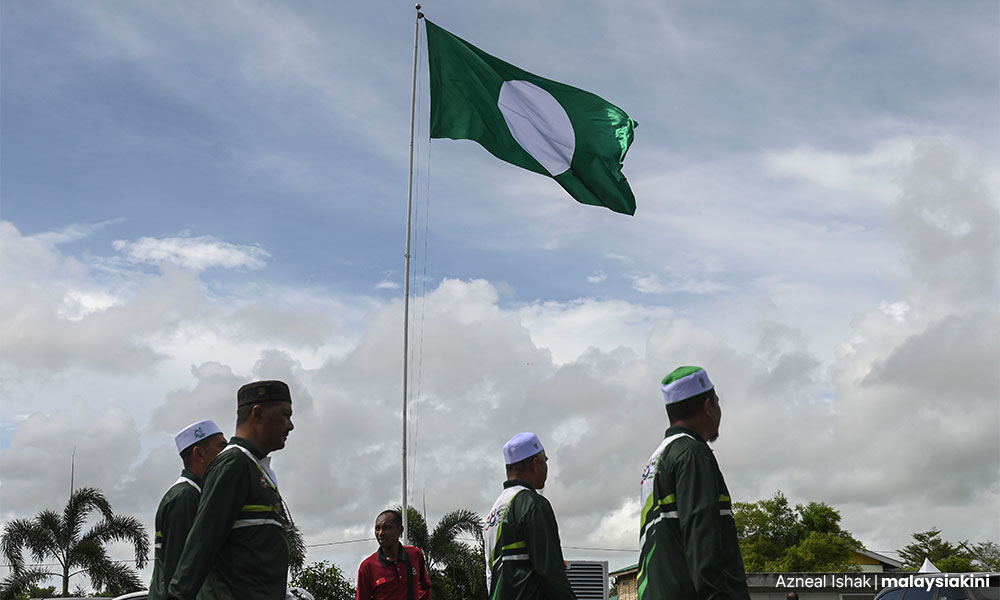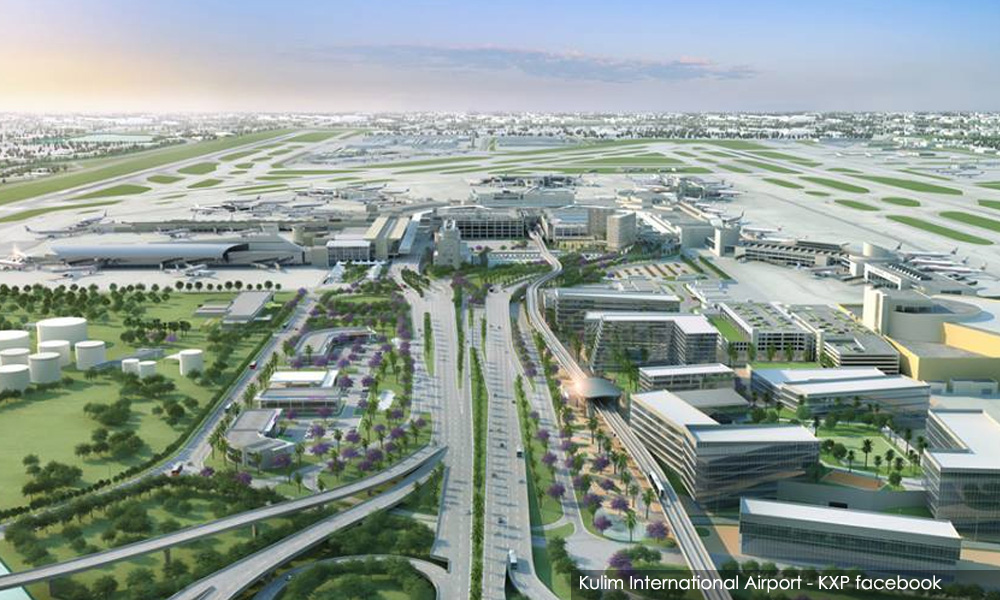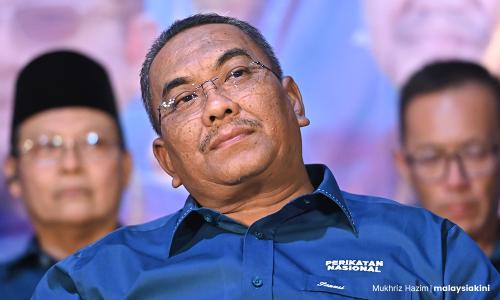YOURSAY | Why must ending poverty be politicised?
YOURSAY | ‘It's people like Sanusi who have forgotten their roots and now talk nonsense.’
Ending poverty: Sanusi accuses PM of ‘using’ the poor, says he’s all talk
Koel: My dear Kedah Menteri Besar Muhammad Sanusi Md Nor, your early childhood poverty as you claim does not excuse your arrogance, greed, racism, or lack of knowledge on national and international matters.
If that is your qualification for being a leader, you are even more misguided than we thought. As said previously, the more you open your mouth, the more we see your lack of qualities to be a leader in this 21st century.
You and others like you will drive this country back into poverty, misery, and the dark ages with this kind of ideology.
Kindly shut up and go acquire some wisdom first. That is if you truly love your country and want the best.
At the moment, it certainly does not look like you do. Just a bunch of petty and sad men driven by hate and foaming at the mouth. Not leadership, old boy.
Bravemalaysian: Don’t forget that in his student days, Prime Minister Anwar Ibrahim fought for the poor starving people of Baling (in your state) and was imprisoned for that!
It’s people like Sanusi (above) who have forgotten their roots and now talk nonsense.
But at least I am relieved you are not using racial, religious, or royalty narratives in your speech.
The big talkers and liars are in Perikatan Nasional (PN). When they were leading the country, the country was in chaos and deterioration.
The states they are leading continue to be the poorest. If the people in Terengganu, Kelantan, and Kedah dare to let DAP lead them for five to 10 years, the people will see their lives transformed for the better, including their spiritual wellbeing.

Knucklehead: Sanusi, as someone who claims to have experienced poverty, it is disappointing to see reports of you allegedly flouting Covid-19 lockdown procedures by test-driving an expensive car.
This raises questions about your understanding of poverty and your commitment to the wellbeing of the people you serve.
Additionally, people are curious about the projects and initiatives you have undertaken to alleviate poverty in Kedah.
It is important to demonstrate concrete steps taken and avoid solely blaming federal allocations.
Leading by example and prioritising the welfare of citizens are crucial for public officials.
Addressing these concerns and taking decisive action is necessary to regain public trust and fulfil your responsibilities.
Talking and taking potshots is just cheap publicity!
Max Fury: Kedahans must see that this man is taking them for a ride. A project that size is only for the politicians to make money.
They will buy the land cheaply and sell it for hundreds of millions or billions to profit from it.
Then the project will be half abandoned and Kedahans will have to live with the eyesore of a massive abandoned project in their state.
That is what is going to happen. The politicians would happily take their money and walk away from the project, leaving the Kedahans with nothing.
This so-called Kedah Aerotropolis is only a property play.
drkam: He still talks about the issue of mega-construction. The Kedah Aerotropolis is a megaproject that will include the planned Kulim International Airport project.
We have seen how mega-construction projects often involve large sums of money, extensive planning, and a significant impact on infrastructure development.

Unfortunately, in many cases, these projects were marred by corruption, with politicians and officials misusing their power for personal gain.
Corruption in mega-construction projects typically takes various forms. It can involve bribery, kickbacks, embezzlement, and other illicit practices.
Politicians who hold significant influence and decision-making power may use their positions to award contracts to specific companies in exchange for personal benefits, such as financial kickbacks or political favours.
This type of corruption not only diverts funds from their intended purposes but also undermines the fairness and transparency of the construction industry.
The consequences of mega-construction-related corruption are far-reaching.
Firstly, it leads to the misallocation of resources, as projects may be undertaken not based on merit or public need but rather on personal gain.
This can result in inefficient and poorly executed projects, wasting taxpayers’ money and negatively impacting the quality of infrastructure.
Moreover, corruption erodes public trust in the government and its ability to manage public funds responsibly.
When citizens witness politicians engaging in corrupt practices, it undermines their confidence in the government's ability to address their needs and prioritise public welfare over personal interests.
This can have detrimental effects on governance, economic development, and social stability.
Combating corruption in mega-construction projects requires a multi-faceted approach. It involves strengthening legal frameworks and regulatory bodies to prevent and investigate corrupt practices.
Additionally, promoting transparency and accountability through measures such as open bidding processes, public disclosure of contracts, and robust oversight mechanisms can help curb corruption.
Furthermore, enhancing public awareness and civic participation is crucial.
By promoting an informed and engaged citizenry, there is increased vigilance against corrupt practices, and citizens can actively demand accountability from their elected representatives.
Overall, Sanusi, please address corruption in mega-construction projects first. Is it vital for promoting fair and sustainable development, ensuring the efficient allocation of resources, and rebuilding public trust in the government’s ability to serve the interests of its citizens?
Siva1967: Recollecting how he grew up in a hardcore poor family, where his father took up numerous jobs to support his family of 13 siblings, Sanusi asserted that he knows what it’s like to be poor.
With 15 people in a household and God knows how many more in the same household, anyone even with a decent salary will end up poor.
Some of us with high-end four-figure incomes with two sons also find it difficult to make ends meet, especially since the bulk of our income goes to giving quality education to the children without assistance from the government.
What Sanusi should be asking is, why are Malays, even those in Kedah, still poor despite being the bread basket (or should I say rice basket) of the country?
With three former prime ministers from Kedah and being under a Malay menteri besar from the time of Merdeka, why is Kedah still considered poor? Why are so many Malays still poor?
Why train the guns on Anwar when this current government has only been in power for less than a year?
Sanusi should stop barking and start doing something for the people of Kedah. If he needs some assistance, I am willing to take up an advisory role with no salary to guide him if he wishes.
But I am certain he will not take up my offer since I am considered pendatang (immigrant).
The above is a selection of comments posted by Malaysiakini subscribers. Only paying subscribers can post comments. In the past year, Malaysiakinians have posted over 100,000 comments. Join the Malaysiakini community and help set the news agenda. Subscribe now.
These comments are compiled to reflect the views of Malaysiakini subscribers on matters of public interest. Malaysiakini does not intend to represent these views as fact.
RM12.50 / month
- Unlimited access to award-winning journalism
- Comment and share your opinions on all our articles
- Gift interesting stories to your friends
- Tax deductable
